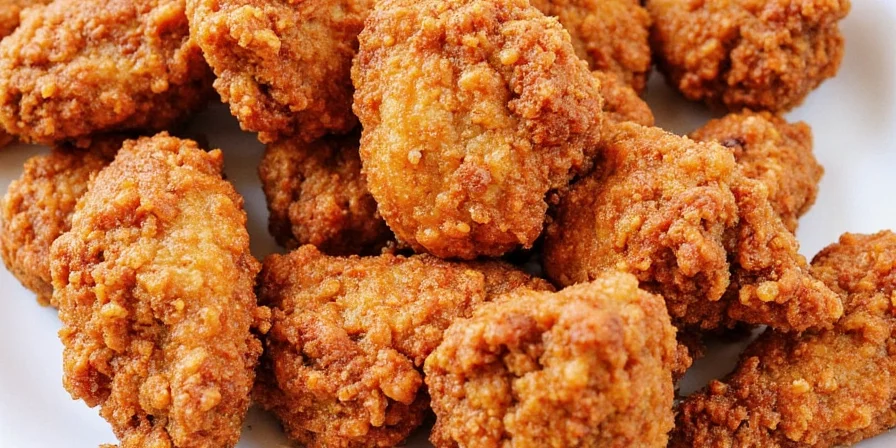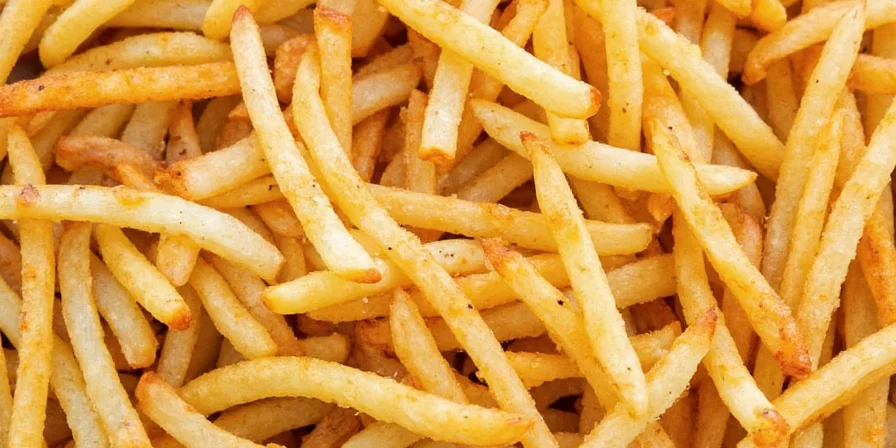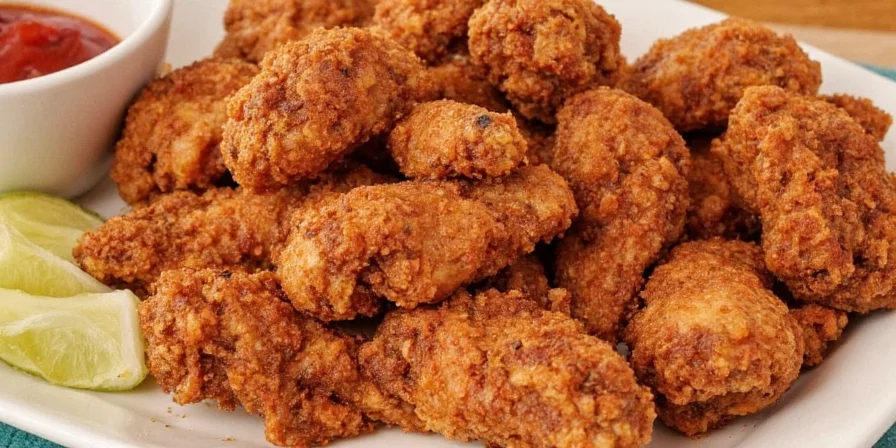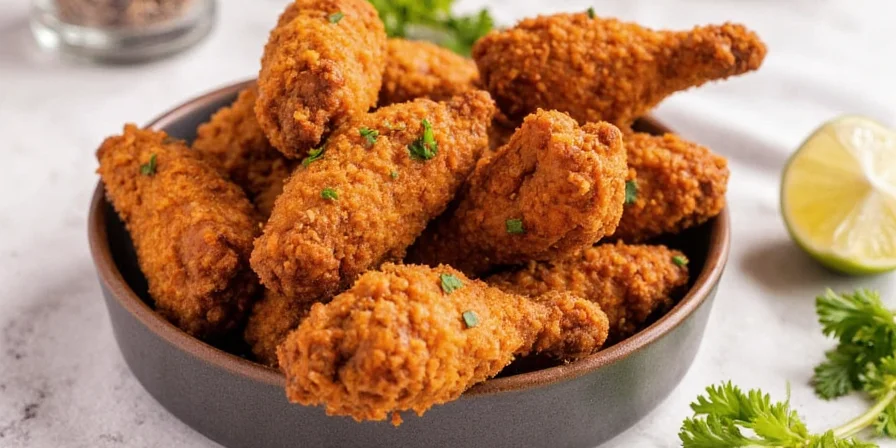🔥 Hot, Crispy & Cajun-Spiced: A Deep Dive into Making the Ultimate Cajun Fried Chicken
Cajun fried chicken isn’t just another dish on your Sunday dinner table — it’s a spicy, flavorful journey straight from the bayous of Louisiana to your frying pan. Whether you're a seasoned home cook or someone who’s just starting to explore the magic of spices, this recipe for Cajun fried chicken will transform your kitchen into a Southern culinary haven.
So roll up your sleeves, grab your spice rack, and let’s dive into what makes Cajun fried chicken one of the most loved comfort foods across the globe.
📋 Table of Contents
- 🌶️ A Brief History of Cajun Cuisine
- 🧂 What Exactly Is Cajun Spice?
- 🍗 Choosing the Right Chicken
- 🍯 Marination Tips That Make a Difference
- 🔥 Frying Like a Pro: Techniques and Tools
- 🔄 Cajun vs. Creole: Know the Difference
- 🍴 Serving Suggestions & Sides That Wow
- 🚫 Common Mistakes (And How to Avoid Them)
- 🌍 Cajun Spice Around the World
- ✅ Final Thoughts: Why Cajun Fried Chicken Wins Every Time
🌶️ A Brief History of Cajun Cuisine
The roots of Cajun cuisine trace back to the Acadian people who migrated from Canada to Louisiana in the 18th century. Over time, they blended French cooking techniques with local ingredients, creating a rustic, bold, and deeply spiced flavor profile that defines Cajun food today.
Fried chicken became a staple not only because it was hearty and easy to make but also because the use of spice blends allowed cooks to elevate a simple ingredient into something unforgettable.

🧂 What Exactly Is Cajun Spice?
While many confuse Cajun and Creole seasoning, the difference lies in their composition:
| Type | Main Ingredients | Flavor Profile | Heat Level |
|---|---|---|---|
| Cajun | Paprika, garlic powder, onion powder, black pepper, cayenne | Earthy, smoky, hot | High |
| Creole | Oregano, thyme, rosemary, paprika, garlic | Herby, complex, mild to moderate | Moderate |
Cajun spice leans more towards heat and earthiness, making it perfect for fried chicken lovers who crave that slow-building fire in every bite.
🍗 Choosing the Right Chicken
- Bone-in, skin-on pieces: These provide better moisture retention and crispier skin.
- Thighs and drumsticks: Preferred over breasts for juiciness and deeper flavor.
- Free-range or organic chicken: Offers a richer taste and cleaner flavor profile.

🍯 Marination Tips That Make a Difference
- Use buttermilk: Tenderizes the chicken and allows spices to penetrate deeper.
- Salt early: Seasoning at least 4 hours before frying enhances flavor absorption.
- Spice blend ratio: Aim for 2 tbsp Cajun seasoning per 2 lbs of chicken.
- Let it rest: Refrigerate marinated chicken overnight for optimal flavor infusion.
🔥 Frying Like a Pro: Techniques and Tools
The secret to crispy, juicy Cajun fried chicken lies in technique and equipment. Here’s how to nail it every time:
- Oil choice: Use peanut oil or canola oil for high smoke point and neutral flavor.
- Temperature control: Keep the oil between 350°F–375°F for golden perfection.
- Double dredging: Dip in flour mixture, then egg wash, then flour again for extra crunch.
- Don’t crowd the pan: Fry in batches to maintain temperature and texture.

🔄 Cajun vs. Creole: Know the Difference
If you’re ever stuck deciding between Cajun and Creole seasoning, remember this rule of thumb:
- Cajun = Heat + Earth
- Creole = Herbs + Depth
Both are rooted in Louisiana cuisine, but Cajun leans heavier on peppers and bold spices, while Creole adds more herbs like oregano and thyme. For fried chicken, Cajun is king.
🍴 Serving Suggestions & Sides That Wow
What’s Cajun fried chicken without some classic Southern sides?
- Coleslaw: Cool and creamy, balances the heat perfectly.
- Biscuits: Great for soaking up juices or making a sandwich later.
- Red beans and rice: Adds heartiness and complements the spice beautifully.
- Pickled vegetables: Cucumbers or okra add brightness and cut through richness.

🚫 Common Mistakes (And How to Avoid Them)
Avoid these common pitfalls to ensure your Cajun fried chicken hits the spot:
| Mistake | Solution |
|---|---|
| Chicken too dry | Marinate longer and avoid overcooking |
| Greasy crust | Drain on a wire rack instead of paper towels |
| Dull flavor | Use fresh spices and salt adequately |
| Uneven frying | Keep oil temperature consistent; don’t overcrowd |
🌍 Cajun Spice Around the World
You might think Cajun spices are confined to American kitchens, but they’ve traveled far beyond Louisiana’s borders:
- Tokyo: Cajun-style fried chicken wings in izakayas
- Paris: Upscale Cajun-fried quail in bistros
- Bangalore: Fusion biryani with Cajun-spiced chicken
- Dubai: Spicy fried chicken burgers at street food stalls
This global love affair with Cajun flavors shows how versatile and powerful this spice blend really is.

✅ Final Thoughts: Why Cajun Fried Chicken Wins Every Time
Cajun fried chicken is more than a meal — it’s a celebration of spice, tradition, and soulful cooking. With the right blend of spices, proper marination, and smart frying techniques, you can turn a humble bird into a show-stopping dish that delights both amateur eaters and pro palates alike.
Remember: the key to great Cajun fried chicken is balance — heat, crunch, tenderness, and a bit of history in every bite. So spice it up, fry it right, and enjoy!

📌 Quick Recap: The 5 Commandments of Cajun Fried Chicken
- Use bone-in chicken for best flavor and texture
- Marinate in buttermilk and Cajun spice overnight
- Double dredge for maximum crunch
- Keep oil temperature steady during frying
- Rest on a wire rack, not paper towels











 浙公网安备
33010002000092号
浙公网安备
33010002000092号 浙B2-20120091-4
浙B2-20120091-4